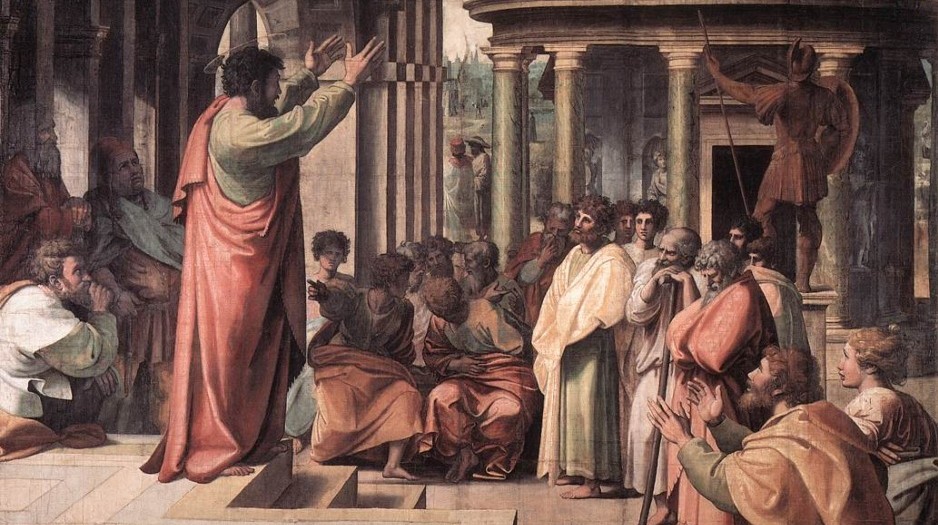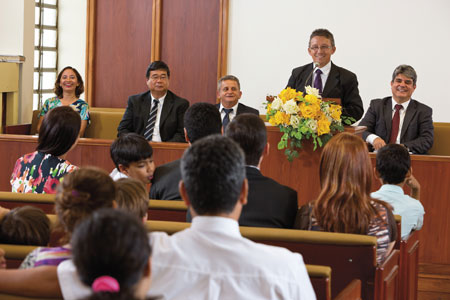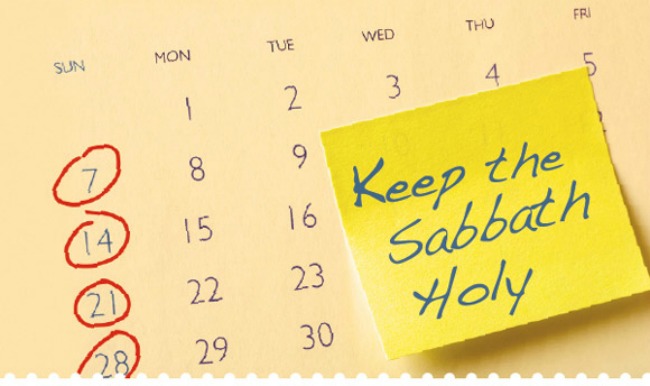Question
Hi Gramps,
My Mormon friend directed me to your website for answers. So I have had a look at the rich repository to many of my questions. I noted your answer in two similar questions to “Why was the Sabbath day changed from Saturday to Sunday?” and you quote a first day meeting Paul had with the disciples and mention that the Sunday is kept in honor of the resurrection. I then did a study in the book of Acts and found nine instances where Paul regularly met with the Jews and Gentiles alike on the Sabbath day for worship in the synagogue by the river. Would not have Paul at least met with the Gentiles on a Sunday? Such a a big change to one of God’s commandments, I am sure, would have been preached by Paul and recorded somewhere.
Blessings,
Peter
Answer
Modern Revelation
With modern revelation approving the practice Sabbath worship on the first day of the week, we then turn to the New Testament to see if there’s support for such a transition anciently. Here we find that “the first day of the week … the disciples came together to break bread” (Acts 20:7). But what of the many instances in the Acts of the Apostles that speak of sermons and gatherings in synagogues on the Jewish Sabbath? Most of the sermons we have recorded in this book are missionary lectures given by Paul and his mission companions. In this light, let’s take a look at an example in chapter 13.
Paul and his companions “went into the synagogue on the sabbath day, and sat down.” They were then invited by the (presumably traditional Jewish) rulers of the synagogue to give commentary. Paul teaches that forgiveness comes through the resurrected Christ, and exhorts the congregation to believe on the Christ and beware the penalties that await those who don’t believe. The sermon was convincing. “Jews and religious proselytes” (a term referring to Gentile converts of Judaism) were “persuaded … to continue in the grace of God.” Word travelled of these mighty messengers and “the next Sabbath day … almost the whole city” came to hear their teachings (Acts 13:14-44).
Mark here that the congregation that Paul preached to devout Jews and proselytes (“Men of Israel, and ye that fear God”). The second Sabbath, that same congregation spread Paul’s fame across the city so that the whole city wanted to hear what he had to say. If the initial congregation comprised principally of saints, why did they wait until after the sermon to advertise Paul’s arrival? Additionally, the purpose of the sermon is to convince the hearer that the Messiah had truly come, and the synagogue sermons and the readings from Moses are encouraging them to believe in Him that they may be justified. This sermon is one of a missionary purpose. Neither of these is very compelling, but taken in connection with modern revelation, certainly supports the idea that this meeting is a seventh day missionary meeting and not a Sabbath of saints.
Why didn’t the apostles mention a change?
If the Sabbath changed from the seventh day to the first, why didn’t one of the apostles mention it? After all, we have recorded the revelation given to Peter that the Law of Moses has been fulfilled and is no longer binding. But what does that mean of the nitty-gritty? For instance, every Christian congregation I know of see Peter’s revelation and the ensuing apostolic conflicts that follow as support to discontinue the practice of circumcision and the abstaining of unclean foods. Other Mosaic laws are treated as a mixed bag. Temples are out (although both the Savior and the apostles taught there), while tithes may or may not be regulated. Similarly, Christian churches are on both sides of the homosexual debate. Interestingly enough, the Sabbath is almost universally acknowledged as having changed. At the very least, there is no longer a sabbatic year every seventh year. And the Jubilee only gets a nod as a 50th anniversary, with little remembrance that it is supposed to be yet another year of rest (imagine the faith requisite to forego work for two years and forgive debts every 50 years). I am not aware of any Christian denomination, even among those that continue to observe seventh day Sabbaths, that continue to honor these Sabbath years. Having gone this far, are we really going to split hairs over the day changing as well? If so, this puts us in good company. “Let no man therefore judge you,” Paul encourages, “… in respect of an holyday, or of the new moon, or of the sabbath days” (1 Col 2:16).
The Latter-day Saint need not wonder on which day of the week Paul would worship were he alive today. We have Paul’s successors – living apostles who have been commissioned and sent by the Lord Jesus Christ to gather Saints to Him. From the time of Joseph Smith, they have taught us to gather on the new Sabbath, the Lord’s day, to partake of the sacrament and rest. We look to the New Testament and find that the early saints enjoyed a similar practice. And although they continued to use the old Sabbath for proselyting, they understood that the anniversary of the Lord’s Resurrection was a greater miracle than the Exodus or even the Creation, and as such, warranted a special day of rest and reverent renewal.
Gramps







